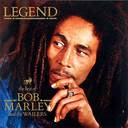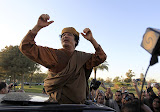Toppling in maritime crimes
By Odimegwu Onwumere
Piracy and maritime crimes in the Nigeria’s sea areas have
become un-abating in 2016, report experts.
“The new reports issued by the International Chamber of
Commerce’s International Maritime Bureau (IMB) show that kidnapping is on the
rise in the region with 44 crew members abducted for ransom in 2016 and 24 of
the incidents occurring in Nigeria, an increase from 10 incidents recorded in
the first half of 2015,” reports Sulaimon Salau, a journalist with The
Guardian, Nigeria, 28 July 2016.
During a UN Security Council Open Debate on Peace
Consolidation in West Africa in New York on April 25 2016, Ambassador Michele
Sison, U.S. Deputy Representative to the UN says that Nigeria is losing about
USD 1.5 billion a month due to piracy, armed robbery at sea, smuggling, and
fuel supply fraud as piracy and armed robbery in the Gulf of Guinea increase at
an alarming rate.
"Since the start of the year, at least 32 attacks off
the coast of Nigeria were recorded, affecting many member states," reports
Bella Naija, an online news media, April 25, 2016.
Suspected sea pirates on Friday night, July 22 2016, killed
an officer of the Nigerian Security and Civil Defence Corps (NSCDC) in Bayelsa
State, authorities have said.
“What we are having on the waterways is the fallout of what
is happening in the country in terms of armed robbery and kidnapping. These
people only moved from land to sea to perpetrate their evil acts. The
difference is that they have mastered the water, unlike those ones that are
operating on the land. It is like the Navy are not well equipped," says
The Chairman, Indigenous Ship Owners’ Association of Nigeria, Isaac Jolapamo,
who is also the Chief Executive Officer, Morlap Shipping Company Limited.
The killing of the NSCDC official came after the
Director-General of the Nigerian Maritime Administration and Safety Agency
(NIMASA), Dr. Dakuku Peterside swaggers while addressing an on-going IMO/MOWCA
in Brussels, Belgium, saying that all the coasts in the country are safe for
maritime investors’ activities, with Maritime Patrol Aircraft (MPA) deployed to
patrol and monitor the country’s waterways.
“We have a close working relationship with the United
Nations Office on Drugs and Crimes (UNODC) in order to foster an integrated
approach to dealing with the menace. We have also increased surveillance and
have deployed world-class maritime domain awareness assets in conjunction with
the Nigeria Navy and the Nigeria Ports Authority to monitor our maritime
environment,” Peterside says.
The Control Risks’ Maritime Risk Analysis, a renowned global
team that sees to maritime issues, however, has shown worry that Nigeria is
toppling in offshore kidnaps with presence of activism, terrorism, militancy,
armed assaults being witnessed within her water ways.
“The reports show that maritime security incidents, at the
global level declined by 24 per cent in the first six months of 2016, compared
with the same period in 2015. They also revealed 98 incidents in the first half
of 2016, compared with 134 for the same period in 2015,” the source adds.
Seeing the new development in maritime crimes, on April 15
2016, at a press conference in Abuja, tagged the mission ‘Operation Tsare
Teku’, the Chief of Naval Staff (CNS), Vice Admiral Ibok-Ete Ibas, who was
represented by the Navy Chief of Training and Operations, Rear Admiral Henry
Babalola shows worry about this, hence an institution of a special task force
to check this out, has been announced.
“Officials and private actors disguise theft through
manipulation of meters and shipping documents. Proceeds are laundered through
world financial centres and used to buy assets in and outside Nigeria,
polluting markets and financial institutions overseas, and creating
reputational, political and legal hazards,” a report by Chatham House
indicates.
With the increase in the number of ships being expected by
the Navy to fight maritime crimes, in April 2016, Nigerian Navy is giving
flippancy excuses of their incapability to arrest the situation, saying, the
non-fulfillment of preceding amnesty programmes to ex-militants in the country
and economic problems are the chief reasons behind the recurrence of maritime
crimes in the country.
“There was no maritime crime in the country’s sea
environment from July 2015 to 12 January 2016 when various incidents
re-surfaced in the country,” the excuses are revealed by the Chief of Naval
Staff Vice Admiral Eteh-Ibas at the Press Conference in Abuja.
The crimes that Navy cry about in the waterways may be seen
as a prophesy come true when Dryad Maritime, a leading voice in the sector
predicted last year that maritime crimes may topple in the country in 2016. The
prediction was coming after there was a kidnapping incident where 11 crew
members of a crew offshore of the Niger Delta were kidnapped in three separate
attacks.
“Kidnap remains the most serious threat to mariners in the
Gulf of Guinea, and further similar attacks will almost certainly occur in
2016. In previous years, heavily armed criminal syndicates have conducted the
hijacking of larger vessels hundreds of miles from the Nigerian coastline,
before sailing them back to the Nigerian exclusive economic zone (EEZ) and
transferring the cargo onto illegal offload tankers,” reports maritime crime
figures for 2015.
There are reported cases of petty theft to kidnapping and a
single hijacking when world leaders had thought that in the Gulf of Guinea,
crimes had dropped by nearly a third in 2015 compared to the previous year. Due
to the pirates can demand, they target chiefly, personalities of crews like the
western crew, usually the Master and Chief Engineer.
An Assistant Editor (News), Olukorede Yishau with The Nation
on December 17 2013, accounts that naval sources said that Nigeria was losing
about N250 billion monthly to maritime crimes, such as piracy, bunkering,
smuggling, poaching, oil theft, human trafficking and other transnational
crimes of which experts said in a year, N3 trillion was lost to economic
sabotage.
“President Goodluck Jonathan (then) said 300,000-400,000
barrels of oil per day is lost through maritime crime. This represents more
than 10 per cent of the country’s production. The country and oil companies,
according to the Presidency, lose close to N250 million a month to this crime.
This amount is just 10 per cent of what is lost to all the facets of maritime
crime,” the source says.
Investigation reveals that Shell, a multinational oil
company says in an examination, “The unrest has turned into a worrying criminal
movement, which feeds on massive thefts of crude oil. Heavily armed and
well-organised groups attack oil and gas facilities in the delta, shut down
operations, kidnap staff and sabotage pipelines.”
The then Director-General of NIMASA, Mr. Patrick
Akpobolokemi, “What has come to be known as Nigeria piracy is the hijacking of
ships by hoodlums who attack their targets, mainly tanker vessels with force,
divert the vessel to a hidden place in the sea, siphon its products into their
waiting vessel and then let off the hijacked vessel.”
Akpobolokemi adds, “Nigeria is now being categorised the
same as Somalia as a result of these incidents. But the incident in Nigeria,
even in the Gulf of Guinea, is not as high as that of Somalia where vessels are
being hijacked for ransom. The Nigerian maritime stakeholders are worried at
the increasing trend, as businesses are being interrupted, especially fishing
trawlers.”
According to Ships & Ports, a leading voice on maritime
in the country, “In total, 2015 saw at least 37 crew kidnapped for ransom in
nine separate incidents off the Niger Delta. This compares with 14 incidents of
similar attacks in the area in the previous year, which resulted in the
kidnapping of at least 34 crew members.
The number of crew taken during 2015 is on a par with 2014, albeit from
five fewer attacks, according to Dryad’s figures.”
The source adds, “West African crew may only fetch several
thousand pounds, whilst the criminals hold European crew until a ransom of over
$100,000 per man is paid. The three crews, two Greek and one Pakistani, taken
from MT Kalamos in February this year (2015) were only released once a $400,000
ransom payment was made,” reports Ships & Ports.
The battle-ready by the Nigerian Navy saying that it is bent
on tackling the menace in the maritime sector is not novel. It’s noted that in
2012, the Navy were there and Shell lost more than 40-60,000 barrels of oil a
day, leading the giant oil company to shut down lines, because crime in illegal
connections, more frequent shutdowns, were more than in 2012.
“Barges take stolen oil to tankers waiting offshore for
export. There is also a massive illegal refining business based on stolen crude
oil. All these have reduced the amount of oil SPDC is producing, created
environmental and social problems from oil spills and reduced government
revenue that could be used to develop infrastructure and services,” the source
adds.
The then presidential aide Ken Saro-Wiwa jnr., says: “The
figures are huge. (Oil theft) could destabilise Nigeria. The business is worth
billions of dollars a year. It is on an industrial scale, and involves
commodity traders, international (criminals) and a whole network of people.
There are some allegations that the oil companies themselves are implicated.”
A senior naval officer, Air Vice-Marshal Eko Osim, laments
to The Nation, saying, "The maritime crime industry is not limited to oil
theft. Smuggling, piracy and bunkering are top on the list of the crimes, as
economic sabotage perpetrated through the water, where the country loses N250
billion monthly to maritime crime. This comes to N3 trillion annually, far in
excess of what the country spends on education and health, which are in dire
strait."
In what sounds political, then Acting Director General of
NIMASA, Mr. Haruna Baba Jauro in December 2015 expresses the agency’s
commitment (like Peterside is sounding) in stamping out the activities of
criminals in the seas.
Jauro makes this statement while speaking as a special guest
of honour at the opening ceremony of the Nigerian Army School of Public
Relations and Information, NASPRI, media workshop in Lagos.
“NIMASA had committed itself to ensuring the success of the
working agreements with the Nigerian military in order to keep the Nigerian
maritime environment safe from criminal activities,” Jauro says.
In 2014, Chief of Naval Staff, Vice Admiral Usman Jubrin
then, in his welcome address at the occasion of the Navy ceremonial sunset and
2014 end of year ball held at the NNS Quorrah, Apapa Lagos, discloses how navy
expected two ships from China and the United States of America before the end
of year 2014, as they increased effort to stomp out maritime crimes in the
country.
“Though this demands
are heavy, the consequences of neglecting them are direr especially for a
nation like Nigeria whose livelihood and well being are very closely tied to
the maritime environment,” Jubrin said.
In a statement, according to The News, March 2 2016,
"Maritime Academy of Nigeria, Oron, Akwa Ibom State has revealed that
about 11,000 cadets of the maritime institute who have succeeded in completing
various cadet courses in the last 10 years have been denied the opportunity of
doing the one-year mandatory practical training on board ocean going vessels.
This is a requirement by the International Maritime Organisation that has been
made impossible because Nigeria does not have a training ship for the cadets.
Consequently, the cadets have been denied the award of the Certificate of
Competency, COC."
Sison says that the root causes of piracy in the region are
“ineffective governance structures, weak rule of law, precarious legal
frameworks and inadequate naval, coast guard, and maritime law enforcement.”
However, it may not be business as usual for pirates as Navy
say they are ready to tackle crimes in the Nigeria’s waterways with the
following ships: NNS Okpabana, NNS Kyanwa, NNS Sagbama, NNS Andoni, NNS
Centenary, NNS Burutu and NNS Zaria.
Odimegwu Onwumere is a Rivers State based poet, writer and
consultant. He won in the digital category, Nordica Media Merit Awards 2016,
Lagos; and the International Award for Excellence in Journalism 2016, Geneva.
















No comments:
Post a Comment